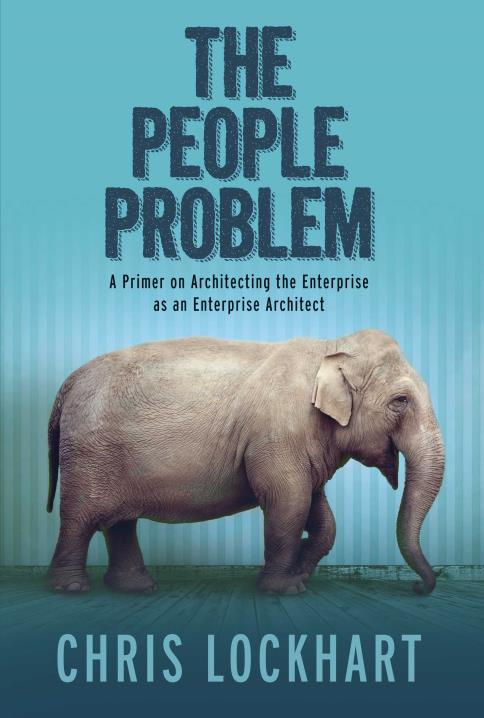I was thinking about the role expertise plays in the effectiveness of our businesses, programs, projects and other enterprise efforts. It often strikes me that too many people are involved, saying too many words, for too much time. Why is this so? It detracts from our ability to execute or at the very least makes successful execution more difficult. Why do we put up with it then? Are we insecure in our ability to deliver a project, for example, without some kind of group affirmation? Is this why we involve dozens of other people? Perhaps we are acknowledging that expertise is distributed and not always concentrated. Ceding expertise authority in this fashion is probably in part a deep-seated, instinctual risk mitigation strategy. More people to blame. But there is the more obvious aspect: we know we don’t know everything and we need to cede authority over expertise to others in order to accomplish the task.
Respect my Authority
There are many types and forms of authority in life and in business. Our species naturally forms into hierarchies that involve multiple relationships that are voluntary and involuntary. Within that social construct, several studies have identified 3 specific types of authority that are most common: authority by general acclaim (due to charisma or other personal qualities), traditional authority and legal authority. I submit that there is a fourth authority that heretofore has gone uncommented upon. That fourth type is self-anointed, yet generally-rejected authority.
Authority by general acclaim is the authority that has the most resonance when it comes to discussing leadership. This type is the most inspirational form and is often to be found in popular politicians, social leaders and celebrity figures. While it is largely based on an individual’s personality traits including charm, wit and charisma, it is extremely powerful. This form is able to harmonize disparate opinions and unite opinion behind their vision. General populations are often more than willing to confer authority on these leaders. From a business and IT perspective, these are the experts that derive their authority from the impact they have on others. To be honest, they’re not terribly common within the context of architecture and strategy. For example, Bob is a rock star expert in Enterprise Architect, always tweeting humorous things and engaging people on LinkedIn via witty back and forth. His authority is derived from his popularity.
Traditional authority is more of your standard domination type wherein a person has authority by established practice and their force of will. This authority is not given to a person by laws or conferred via their attractive charisma. This is authority that is seized by dominating personalities that overpower those around them. While this sounds like conflict, people tend to accept this type of authority perhaps realizing they don’t really want to be chief. Within business and technology this is often found in domain expertise. There is nothing inherent about this type of authority that prevents it from being transferred to others or shared among many. Biff put in 10,000 hours over the years practicing and focusing on Enterprise Architecture and is regarded as an expert by his less skilled peers.
Legal authority is the one with which we are probably most familiar as a society. This is the authority given to the CEO, the political leaders, the bureaucrats. In our enterprise context, these would be the natural hierarchies that we see emerge, described by RACIs and interaction models and governed by policies, standards and procedures. Bill is an expert in Enterprise Architecture because he is the Chief Architect by title and role in the org chart.
But the fourth type of authority, well, it is common, pernicious, obnoxious. The self-anointed and yet generally rejected expert is pretty self-explanatory. This is a person who aspires to one of the other three types of authority, confers it upon themselves based on self-delusion, and goes without general recognition or acceptance of that authority. Yet even without their authority being recognized, they exercise that authority as if it were. LinkedIn is replete with this type of expert. Within our companies, we attend meetings with these people almost every day. They’re especially prevalent in technology but can also successfully hide in some business area for years. Bert used to be an executive assistant, watched a single webinar about social media marketing and is now calling himself an expert content strategist even though no one in marketing pays any attention to him.
Behold, I am The Guru
People that exercise one or multiple types of authority can do so for years, churning out opinion, perspective, leading thought and building a body of work and experience that cause other people to view them as experts. Well, except for Bert of course. No one pays attention to him. With some luck, a touch of perceived predictive success and a little more ego, these experts can come to hold the title of guru.
A guru is a special type of expert. Whereas expert implies mastery of a particular field of knowledge, it doesn’t quite carry the finality of perspective that the title of guru does. A guru is not just an expert, they are THE expert. There can’t be two gurus on the same subject in the same room. It’s like matter and antimatter or going back in time and killing your grandfather. A rift in the space-time continuum would open if two gurus were in the same place at the same time.
Besides being the final word in a particular area, there is an almost spiritual quality to the guru. They don’t just know a field, they channel it. The guru doesn’t attend meetings to relay their expertise. People come to them to hear their pronouncements on their field of expertise. They don’t have to put out papers or produce content to further their guruship. People ask them to opine. The pronouncements are often caged in significant hedging so as to preserve their guruship despite the outcome of their pronouncements. Think of The Oracle at Delphi or Nostradamus. Anything that they say is vague enough so as to mean anything but said in such a way that it seems dramatic and profound. And often, it can be profound.
Leaders exercising regular types of authority can be inspirational and visionary, but also wrong from time to time. A guru is not wrong. A guru shapes opinion and creates insight in a way that they can never be wrong. As such, they are ahead of regular thought on a topic. The guru is unassailable, a demi-God.
While often annoying as hell, however, experts and gurus that achieve their status by one of the first three forms of authority are sought after and necessary for successful delivery or execution. They are not terrible people to have around. They are useful. They can contribute their expertise in ways that can speed success. But they are also few in number. What we tend to have plenty of instead is the person that achieves status via the fourth method of authority. The self-anointed, yet generally rejected expert seems to be so plentiful that we can’t really avoid them. They attend our meetings, make their pronouncements, sow confusion and discord, and generally cause frustration and delay. They can also spend years in their field. They too can rise to a special level. But they don’t become gurus. No. They become un-gurus.
The dark art of Unguruship
Ungurus are self-anointed, yet generally rejected experts that have achieved a level of true artistic talent in employing hyperbole, relentless self-promotion, semi-truths, bluster and lack of accomplishment. They loudly proclaim their supposed knowledge to anyone who will listen and yet seem to never be around when actual contribution is required. They don’t produce work products or other artifacts (other than what they shamelessly steal from others) and can just never make that working session where the presentation is being crafted in real time. Worse than not contributing, their desire for attention causes them to insert themselves into places where they actively prevent other people from doing the necessary work. Even worse than this is the overall impact their involvement can have on the morale of a project or effort. People come to resent the unguru for their condescension, emotional unpredictability, and tendency to throw a red herring spanner into the works. The unguru likes to tell people what cannot be done rather than focus on what can be done. They love to shoot down other people for no reason other than to puff themselves up. In short, they impede execution. They hobble progress. They disrupt advancement. The unguru is vampiric when it comes to value. They may be consultants or employees or even third party advisors. In any case, their presence is a net-negative.
An unguru lurking around can cause so many problems that they must be prevented from disrupting your project or effort. While a guru is a bit of a loner, the unguru thrives around people and in fact needs people, not unlike a tapeworm. By needlessly tearing other people apart, the unguru elevates their own sense of superiority. Given this, keeping them away from you and your project and your team is a difficult task. The most effective method of keeping them away is through active profiling. By knowing the general characteristics of an unguru (word use, quantity of emails sent, meeting voice tone and volume, personal hygiene, etc.), you may be able to avoid mistakenly asking for their input. This won’t prevent them from being assigned to you, however. Once that happens you have very little recourse other than to actively engage them in some meaningless, but hopefully endless, task. Status reporting, for example. Research is another good one.
Just…don’t
Avoiding the unguru and their assumed mantle of false authority is difficult but possible. Unless, of course, you are the unguru. An easy way to tell is to self-reflect. Do you really know what you’re talking about? I mean, honestly? If you arrogantly swagger around meetings, are you a little bit scared that someone might discover you are full of shit? Is there even a piece of you that wonders why no one asks for your input and yet you feel the need to interject your opinion and talk and talk and talk anyway? Do you seem to have an opinion on every damn thing? Does no one respect your authority? Do you call yourself an expert or a guru and yet no one else seems to? You might be an unguru.
But for most of us, we know we don’t know everything. We’re mostly honest about what we know and what we don’t. There is no false authority that we wield. In reality, we each exercise authority in pockets where we actually have expertise. Few of us are truly experts, and gurus are mostly mythical beasts. Here’s a humble suggestion. Don’t call yourself an expert or a guru. Both terms imply that you have nothing left to learn in a particular area where you actually know something other people care about.
Authority is conferred in one way or another, either actively or passively. Even in the case of the 2nd form of authority, characterized by domination, the authority is affirmed by the people subject to that authority. In other words, authority comes from others. As do titles such as expert or guru.


